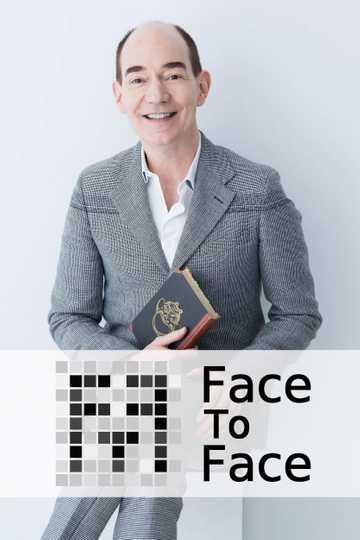Season 4 Episodes
1. Masahisa Kogure: Serving Both Sides of the Table
TABLE FOR TWO aims to tackle the dichotomy of global obesity and hunger through a unique calorie transfer program in which healthy meals are served at the cafeterias of partner companies, with the excess calories -- 20 yen per meal -- used to support school lunches in developing countries. The brainchild of Masahisa Kogure (45), TFT now has over 700 corporate partners. But it wasn't easy to sell the idea of social contribution in Japan, as we'll hear in his discussion with Robert Campbell.
2. Yasunari Hiraki: Word by Word
The latest edition of Kojien, the most authoritative of Japanese dictionaries, hit the stores in January 2018. A team of 220 wordsmiths spent 5 years tracking words in the media and on the Internet before deciding on the 10,000 or so new entries that reflect Japan today, such as "jidori" (selfie) and "moe" (passion). Chief editor Yasunari Hiraki believes that words evolve with the times. We'll ask him about what goes into the making of a dictionary and what he feels is its role today.
3. Yachiyo Inoue: Tradition in Full Bloom
Kyoto celebrates spring with Miyako Odori, a 400-year-old dance festival featuring the geiko and maiko of Gion. The choreographer of this month-long event is Yachiyo Inoue, the 5th generation master of Kyomai, a school of dance characterized by elegant and highly stylized movements accentuated by stomping. Kyomai is suffering from a lack of successors. But Inoue is striving to keep the tradition alive with new dances that incorporate elements from other genres, as we'll hear on Face To Face.
4. Kyoko Fukuchi: The Tsukiji Legacy
With the Tsukiji Market slated for relocation in October 2018, a major concern is how to preserve its distinctive culture and traditions that date back over 400 years. Our guest this time is Kyoko Fukuchi, a writer and former intermediary wholesaler who provides an insight into what makes Tsukiji such a special place -- the sophisticated technology found in the architectural design and the people who make it all work, including the "mekiki", the experts with the discerning eye for quality.
5. Kiyomi Mikuni: Japanese Cuisine at the Olympics
Around 15,000 athletes are expected at the Tokyo 2020 Olympic Games. Serving them food while taking into account their individual needs and cultural background is no easy job. That's why Kiyomi Mikuni has been put in charge. One of Japan's leading French chefs, he knows how to wow guests from around the world. And he aims to build upon this experience to provide the athletes with the best of Japanese hospitality, while promoting organic produce and food education. This and more on Face To Face.
6. Yoshinori Kaneko: Bringing Back from Extinction
The destruction of natural habitats in the name of economic growth has made a once common bird an endangered species. In June 2018, however, 19 "toki," or Japanese crested ibis were reintroduced into the wild, thanks to a breeding and release program led by veterinarian Yoshinori Kaneko. He says it's been a process of trial and error that includes working with Chinese researchers and calling on local farmers to cut back on pesticides. He talks about what it takes to live in harmony with nature.
7. Yasuji Hirasawa: The Unheard Voices of Leprosy
Hansen's disease or leprosy has been treated effectively since the 1950's in most countries. It's not even that contagious. But in Japan, people affected by the disease were forcefully isolated until 1996. Today, most elderly patients, even though cured, remain cut off from their families, destined to live out their lives in sanatoriums. Prejudice and discrimination still prevail. Former patient Yasuji Hirasawa talks about his efforts to preserve this dark history and raise social awareness.
8. Eiko Kadono: Weaving Magic with Words
The 2018 Hans Christian Andersen Award for Writing, aka the Little Nobel Prize for Literature, went to Eiko Kadono (83), author of "Kiki's Delivery Service." She won acclaim for her inspirational portrayal of a girl who makes her own way through life. Recently, she started to write stories about her own wartime experiences in a way that transcends time and space. She also gives monthly public readings and provides insight into her magical world, inspiring children with imagination and courage.
9. Eiichi Saitoh: Resilience and Recovery Come in Pairs
Eiichi Saitoh is a pioneering figure in rehabilitation medicine and man behind the development of cutting-edge braces and robots. Stricken by polio as a child, his right leg is paralyzed. But he turns this into an advantage to develop and test his inventions on himself. His aim is to help people remember and relearn how to walk. To this end, his robots cause the wearer to stumble without falling, if he or she loses balance. The key to recovery, he says, is to promote resilience and self-help.
10. Takafumi Tsuruta: Eliminating Borders through Fashion
Takafumi Tsuruta is all about designing fashion that is stylish, functional and fun for everyone, transcending all boundaries. He made a splash in 2015 when he became the first designer in Japan to feature runway models with disabilities. A wheelchair user, for instance, modeled a pair of pants with no seams in the back to prevent rubbing and chafing, and easily accessible funky knee pockets. He talks about his dream of creating a diverse society with zero prejudice through inclusive fashion.
11. Hitoshi Kuninaka: Never Say No to a Challenge
In September 2018, Japan's space agency, JAXA, became the first to land a robotic explorer on an asteroid. The rovers were dispatched from the asteroid explorer Hayabusa2 and are now gathering samples that are expected to shed light on the origin of the Solar System and the evolution of life. We'll be hearing all about this and more from Dr. Hitoshi Kuninaka, who developed the ion engine that allowed Hayabusa2 to travel 3.2 billion km in three and a half years to reach the asteroid Ryugu.
12. Chieko Kuribayashi: Saving Communities One Meal at a Time
Chieko Kuribayashi is the director of a non-profit. 5 years ago, it opened a "children's cafeteria" to serve kids that, whether for financial reasons or because of their parents' busy work schedules, aren't getting enough to eat at home. It currently operates 4 cafeterias in the Toshima area of Tokyo, and carries out activities all over Japan. Neighbors used to know each other's business -- we hear how one homemaker has embraced that old-fashioned "busybody" spirit to rebuild community bonds.






















